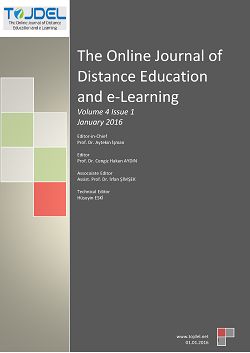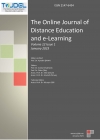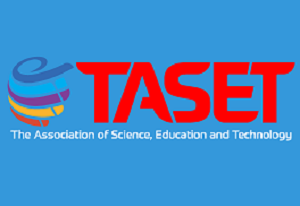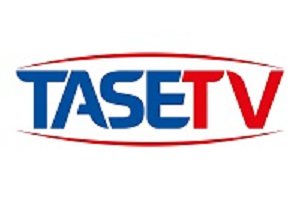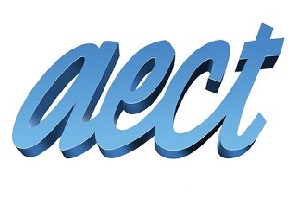TOJDEL - Volume 4 - Issue 1 - January 2016
 REQUIRE OF COOPERATIVE LEARNING NETWORK THROUGH VIRTUAL COURSE AND GENERAL EDIFICATION PLATFORM FOR OPEN EDUCATION IN INDIA
REQUIRE OF COOPERATIVE LEARNING NETWORK THROUGH VIRTUAL COURSE AND GENERAL EDIFICATION PLATFORM FOR OPEN EDUCATION IN INDIA Tamal Sarkar, Manash Esh
Abstract: Human Resource Development is the prime aim behind government funding for higher education and the same should not be restricted to the student getting admission to regular conventional University. In this era of globalizations, the educational needs of an Individual were not correctly catered in form of the conventional form of education. Now, knowledge modules are based on the personalized needs of the learner and need to be delivered at right time with right content. In conventional form of education, the knowledge and capability profile of individual learner is not given any importance. The larger size of class room has also made it impossible for an educator to keep a record of the same. As such, we need a system that would fill these gaps. Here comes the need of the Virtual Classroom. In this work, the authors tried to give a brief account of virtual classroom and its components. The paper is organized into four parts, the first part describe about majors’ forms of educational activities due to globalization. In second part, we define Transnational Education; Glocals; Online Education. The third part describes about need of Collaborative Education Network and common education platform for Open education and its benefits. In fourth part, we will discuss the need of virtual class room for better learning modules.
 CHALLENGES AND SOLUTIONS TO PROVIDING ONLINE COURSES IN KENYA: A LECTURER’S PERSPECTIVE AT A KENYAN UNIVERSITY
CHALLENGES AND SOLUTIONS TO PROVIDING ONLINE COURSES IN KENYA: A LECTURER’S PERSPECTIVE AT A KENYAN UNIVERSITY Myriam Munezero, Mark Irura, Balozi Kirongo, Lazare Etiegni, Jarkko Suhonen
Abstract: What solutions are there to universities facing challenges in providing e-learning? E-learning has the potential to provide increased educational opportunities for students and enhance lecturers´ effectiveness and efficiency. However, in order to experience the full benefits, factors such as adequate infrastructure, e-learning policy, right attitude, among others, should be present. This unfortunately is not the case for every university that wishes to provide e-learning. This paper presents the case of a Kenyan university currently experiencing challenges in combining conventional face-to-face education and e-learning. It examines the current situation at the university and identifies the specific challenges hindering the efficient provision of online courses by lectures. Based on the identified challenges, solutions are recommended that take into account the university's organizational and budgetary situation. The solutions can further be transferred to other universities facing similar challenges.
 CONTRADICTIONS IN E-LEARNING: THE NATURALNESS OF UNNATURALLY LEARNING ONLINE
CONTRADICTIONS IN E-LEARNING: THE NATURALNESS OF UNNATURALLY LEARNING ONLINE Barry Chametzky
Abstract: Online learning has many advantages for students who choose that learning modality. Yet, certain limitations exist. These limitations manifest themselves in various contradictions and dichotomies experienced by educators and learners. Without understanding these dichotomies in the online learning environment as well as the root causes of these dichotomies, educators, educational theorists, educational administrators, and course designers cause barriers to be raised between the subject material and learners; the result is impediment of knowledge acquisition. Only by understanding and implementing strategies to overcome these barriers and their causes could knowledge acquisition take place. Unfortunately, sometimes overcoming these barriers requires extensive modifications to the course and/or academic calendar that might not be feasible. In these situations, workarounds are necessary.
 INVESTIGATING THE EFFECT OF DISTANCE EDUCATION SYSTEM ON THE COMPUTER LITERACY OF MA STUDENTS IN TEHRAN UNIVERSITY
INVESTIGATING THE EFFECT OF DISTANCE EDUCATION SYSTEM ON THE COMPUTER LITERACY OF MA STUDENTS IN TEHRAN UNIVERSITY Mehran Farajollahi, Mohamadreza Sarmadi, Bahman Zandi, Mohsen Keshavarz
Abstract: In Distance Education system, students must be equipped with seven skills of computer (ICDL) hence they must have high computer knowledge. This paper aims at investigating the effect of DE system on the computer literacy of MA students in Tehran University. The design of this study is quasi-experimental. Pretest and posttest were used in both control and experimental groups to undertake the study. The population of this study was students, those who participate in traditional and online education at university of Tehran. In order to gather required data, researcher-made questionnaires consisting of 59 items were used. The content validity index for the whole items of the questionnaire about computer literacy was 0.55. The reliability index for the whole test was 0.61. Data were analyzed by SPSS 16. In order to analyze data the following features were measured: frequency, percentage, standard deviation, T, covariance analysis, Kolmogorov-Smirnov test. The results of data analysis for computer literacy variable reveal that P value for Concepts of IT =0.010, File Management=0.001, Internet=0.03, Databases (Access) =0.03, and Presentation (power point) =0.001(online & traditional education), all are fewer than α=0.05. Therefore, the null hypothesis is rejected, but not the directional hypothesis. It can be concluded that, regarding computer skills, Concepts of IT, File Management, Internet, Databases (Access), and Presentation (power point), there is a significant difference between control and experimental groups. Regarding word processor and spreadsheets (Excel), P value is 0.11 and 0.75 respectively which are higher than 0.05, so the null hypothesis is rejected, but not the directional one and difference between these groups is not significant. To sum up, it can be stated that DE has a more significant impact on Concepts of IT, Internet and Presentation regarding computer literacy than traditional education. It can be stated that traditional education has a more significant impact on Concepts of File Management and Databases (Access) regarding computer literacy than DE.
 MOOC IN THE PARADIGM OF SYSTEMIC MODELLING OF COMPLEXITY: SOME EMERGING PROPERTIES
MOOC IN THE PARADIGM OF SYSTEMIC MODELLING OF COMPLEXITY: SOME EMERGING PROPERTIES Marc Trestini, Isabelle Rossini
Abstract: With the emergence of social networks, MOOC, informal learning through networks and connectivist approaches to learning, Digital Learning Environment (DLE) analysis is becoming more and more complex. The models which were previously used to account for the activity instrumented with cognitive purposes, are now showing their limits (Vygotsky, Leontiev, Kuutti, Engestrom, Rabardel...).The massive aspect of a MOOC is difficult to represent in such models. Its « open » character is no less difficult to model. The evolution of these environments is chaotic and their effects appear unpredictable. But chaotic does not mean hazardous. A complex system is naturally chaotic and it is not possible to predict the outcome of the process directly, by calculation. But it is possible, from systemic modelling to develop plausible scenarios based on the analysis of available data (training trace, trends, emerging properties, etc.). As Paul Valéry once said, “We are only reasoning on models », whether or not the models correspond to reality. The models are constructed from perceived realities, but enable one to assess emerging properties in a projective fashion; their counter-intuitive effects, for example. We hypothesize in this contribution, that the paradigm of systemic modelling of complexity (Edgar Morin, Le Moigne) appears more than ever as a framework which is suitable for the representation and analysis of a DLE of the last generation. In fact, by applying the theory of complex systems to the modelling of a MOOC taken as a case study and considered as a last generation DLE, we will report, in a projective manner, some of the emerging properties.

